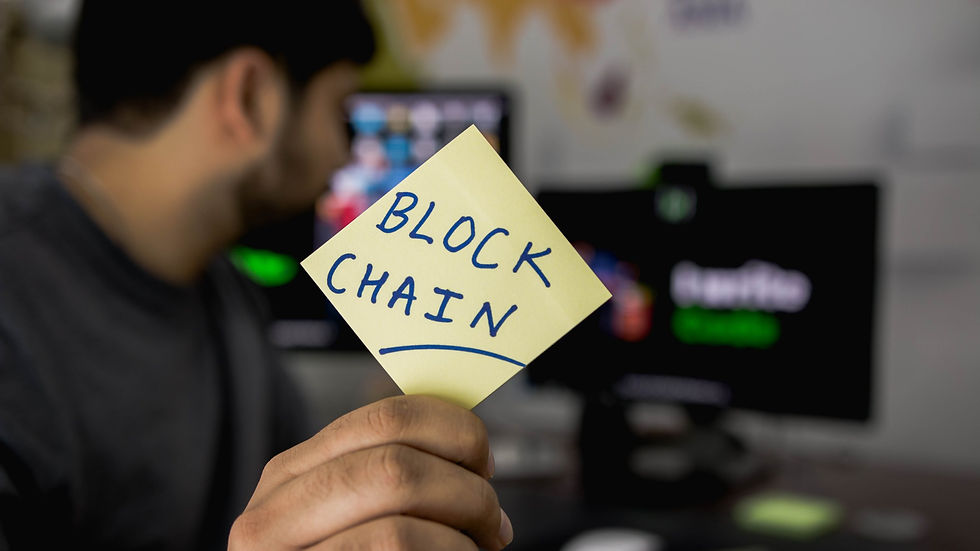Why Blockchain is Likely to Change the Future of School Admissions
- David Willows
- Oct 30, 2018
- 2 min read
Updated: Jun 19, 2023
If Socrates was correct when he said that the only true wisdom is in knowing that you know nothing, then it is certainly true of anyone who has tried to get their head around the idea of blockchain.
But I'm guessing the feeling is not dissimilar to how our parents must have felt in the early 1980s as researchers began to assemble the "network of networks", which by 1990 had become the World Wide Web.
According to Wikipedia, Blockchain is defined as follows:
A blockchain, originally block chain, is a growing list of records, called blocks, which are linked using cryptography. Each block contains a cryptographic hash of the previous block, a timestamp, and transaction data (generally represented as a merkle tree root hash).
This isn't exactly easy reading for those of us who don't live in a world of bitcoins and cryptocurrency.

So maybe for the moment we step back from the complexity and simply picture in our mind an enormous, shared, and continuously updated spreadsheet, accompanying each one of us throughout our lives. Each time we buy something, earn something, learn something, teach something, a transaction occurs and an entry is recorded on our spreadsheet. We carry the spreadsheet around with us, but somewhat like a Google sheet, it's not stored in a single location, making it possible to update from anywhere; it's not controlled by anybody, making it less vulnerable to loss or corruption; and the information it contains is easily verifiable.
That, in a nutshell, is the idea behind blockchain and it is particularly good at authenticating data, keeping records, and making records available when and where they are needed.
So how will any of this change the future of school admissions?
To be honest, it's hard to say exactly. But, for the sake of argument, let's try to imagine an admissions office in which student records - previous school attendance, transcripts, report cards, student assessments - are not so much collected as continuously updated, authenticated, and time stamped along each stage of a child's learning journey.
In such a world, so much of what, today, we have to do in terms of managing the transfer of information, verifying the authenticity of documents, and looking out for instances of non-disclosure would be many times simpler.
The family experience of moving from school to school would be no more hassle than finding your passport before flying off on vacation. Except the passport would no longer be hidden in a safe place you never seem to remember.
Even beyond admissions, the impact that this technology is likely to have on the deeper structure of how schools deliver learning to students is significant. Imagine, for a moment, a school in which students collected verified digital badges as evidence of learning as a means of transitioning into higher education or work life.
If we travelled back to the 1990s and spoke to our former colleagues, we'd likely have warned them what was coming down the line with the advent of the Internet.
Even though it's hard to grasp, I suspect our future colleagues in an era of blockchain will say the same of us.
Photo by Hitesh Choudhary on Unsplash.
Comments